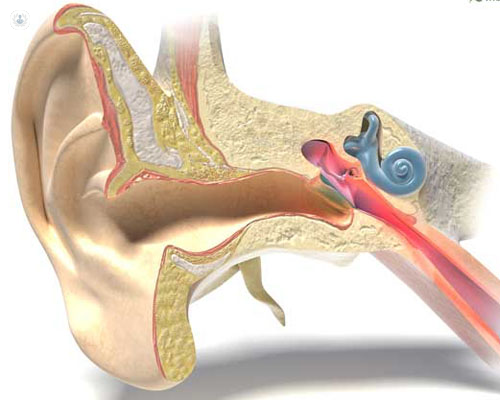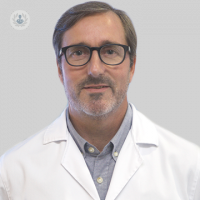Causes and treatments of otitis
Written by:What is otitis?
Otitis is defined as an inflammation of the ear, but properly distinguish between what is an otitis externa, which occurs in the outer part of the ear or otitis media, which occurs behind the eardrum.
What are the causes of the appearance of otitis?
External otitis occur mainly through the entry of water and by the manipulation of the ear, for this very fact, external otitis are also called swimmer's otitis because they are the typical ones that occur in summer. On the other hand, otitis media are also divided into two groups: acute otitis media, which occurs mainly in young children, due to colds of the upper tract and secretory otitis media due to mucus, which occurs in the context of pictures of allergy, rhinitis or also of vegetations in children.

What symptoms appear in otitis?
The symptoms of external otitis are basically pain, which is a very intense pain and often accompanied by secretion through the ear canal.. In contrast, in acute otitis media, which is caused by infections, usually occurs with fever, pain is also intense but not as much as otitis externa and, after a few days may appear the presence of suppuration through the ear. And in secretory otitis media, the one that is produced by mucus, in this case punctures may appear, a sensation of ear plugging, a sensation that the voice resounds in the ear and there are also the symptoms associated with the origin, either an allergy or be a picture of adenoids in children. It is also an important cause of childhood hearing loss and, therefore, this hearing loss in these children should rule out a problem of mucus in the ear.
How is otitis diagnosed?
For the diagnosis of otitis, a complete clinical history should be carried out with questions aimed at knowing the cause of this inflammation and then an exploration of the ear is performed, which can be done by means of a conventional otoscope, an otomicroscope, an endoscopic otoscope or a videotoscope. Next, auditory tests are carried out, in children there are specific tests of children's audiometry, and tests are also usually done to see how is the ventilation of the ear and the tympanic mobility, what is called the impedanceometry. Similarly, we must find out if it is a matter of vegetations, how vegetations are found and also allergy tests are often carried out.
How is otitis treated?
In the treatment of otitis externa, water should be avoided in the ears and anti-inflammatory drugs and ear drops should be administered to shorten the evolution of the process. In acute otitis media, the administration of anti-inflammatory drugs is important, antibiotics are often administered orally, and in the specific case of secretory otitis media, that of mucus, a clinical control is made to see that this is resolved correctly mucus, when this is not the case, corticosteroids can be administered orally or, in some cases, it is necessary to place transtympanic drains by means of a simple surgical intervention to avoid long-term sequelae of the ear.
Can otitis be prevented?
Otitis externa can be prevented by avoiding manipulation of the ear. The use of cotton swabs should also be avoided, as well as the introduction of clips and other instruments inside the ear, which may facilitate infection. On the other hand, in otitis media it is important to know that the risk factors for more otitis media in children are, above all, the attendance of nurseries, smoking in parents and overcrowding. Likewise, the allergy tables and the vegetative tables that must be treated properly must be taken into account.



